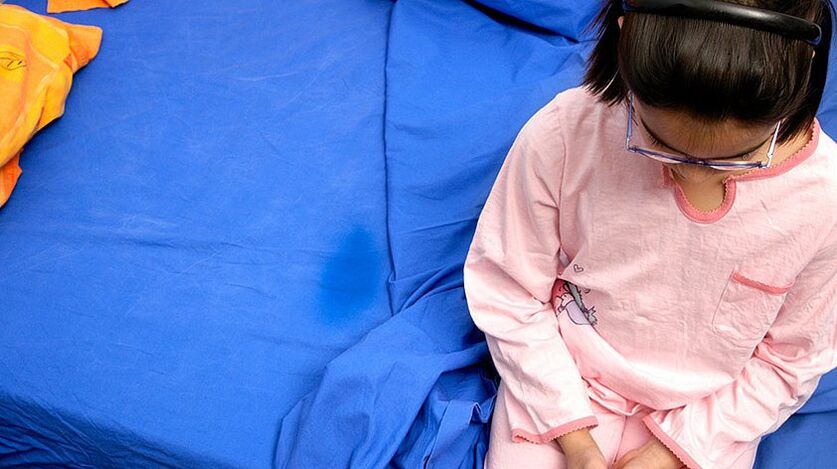
The diagnosis of enuresis is made by adults and children over 5 years old, if more often than twice a month face the problem of involuntary urination. This disease in children usually occurs independently and does not affect their health. But enuresis seriously affects the child's self -esteem and his relationship with parents and colleagues, so they recommend treating urine incontinence from 6 to 7 years old.
What is enuresis
Enudeis is the repeated episodes of urinary incontinence, which occur at least twice a month for 3 months or more. Most of the time, involuntary urination occurs at night. The study of this problem has been involved in doctors since the time of the former Persian scientist Avicena and, for the first time, the term "enuresis" was introduced into medical practice in the late eighteenth century. Since then, it has been possible to find quite effective methods to treat the disease, but the mechanism of its occurrence has not yet been fully studied.
Most of the time, children suffer from an enuree and, in adolescence, in most cases the disease goes through their own.
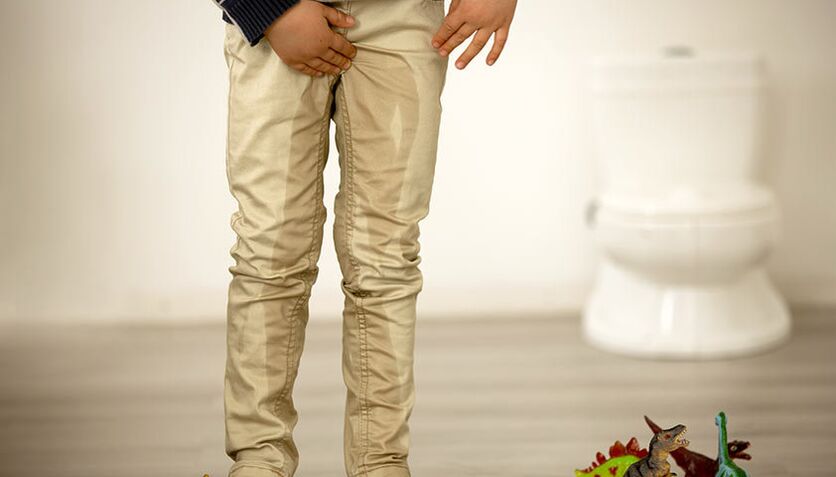
In boys, enuresis is more common than girls
Experts recommend not ignoring this delicate problem, even at an early age, because, due to the incontinence of urine, the child may develop disease of the genitourinary system and psychological problems.
Studies have shown that in children with an enuresis in 70% of cases, anxiety level has increased, they have difficulty communicating with colleagues and finding conflicts in the family because of their problem, which they cannot control. New Zealand's judicial psychiatrist John Makdonald even included enuresis, along with zoosadism (brutal handling of animals) and Piruinia (passion for criminal fire), in the "behavioral triad", which indicates a predisposition to commit cruel crimes. Personality formation is not influenced by Enoorez's episodes, but a trauma associated with mockery and punishments of parents, friends, brothers and sisters.
At age 5, enuresis occurs in 15 to 20%of children, at 7 years of age - in 12%and 10 - in 5%. The disease is also detected in 1-2% of adolescents and 0, 5-1% of adults.
In adults, enuresis usually develops after 45 years, women suffer from them three times more often than men. At this age, episodes of enuresis are usually symptoms of nervous and genitourinary system diseases - and spontaneous healing, as in children, does not occur.
Causes of enorez
Usually, the urination process occurs as follows. Urine through the ureters moves from the kidneys to the bladder, but it does not come out: it is maintained by the muscle ring (sphincter), located at the site of the compound of the urethra with the bladder. Gradually, accumulating, presses the bubble walls and irritates the receptors that transmit a sign about the need to urinate to the brain centers of the brain. The brain sends a sign that you can relax the urethra sphincter. Usually, with persistent requests for urination during sleep, a person wakes up and can deliberately endure for some time.
In children under 4 years of age, brain urination control centers are not finally formed so that they cannot always control this process. "Wet nights" from 4 to 5 years are not considered a deviation from the norm. But after 5 years, enuresis indicates malfunction at any of the stages of urination.
Causes of enuresis in children:
- The slow development of brain urination centers and other central nervous system disorders (central nervous system). Most of the time, this is an individual characteristic of the body and, as the central nervous system develops, Enoorez's problem is on its own. The risk of developing the disease for this reason is greater in children who have been hungry for oxygen (even insignificant) during pregnancy and childbirth to the mother of toxicosis, entering the umbilical cord, inadequate presentation, etc. ;
- Polyuria is an excessive secretion of urine. It may occur due to the fact that the child drinks many fluids at night or due to hormonal disorders. This includes diabetes mellitus, excessive activity of the paratyreoid glands (hyperparathyroidism), reduced production of a vasopressin hormone, which helps to regulate the tone of the muscles of the internal organs and to control the volume of the urine. At night, it is usually synthesized more actively, so the urine forms less;
- Geniturinary System Diseases. Inflammation of the urethra and bladder, neoplasms, narrowing the urethral canal, for example, due to the growth of connective tissue, can also lead to enuresis;
- stress. The loss of a busy relative going to the kindergarten usually causes a nightly incontinence of urine;
- A strong dream because children do not wake up with urination.
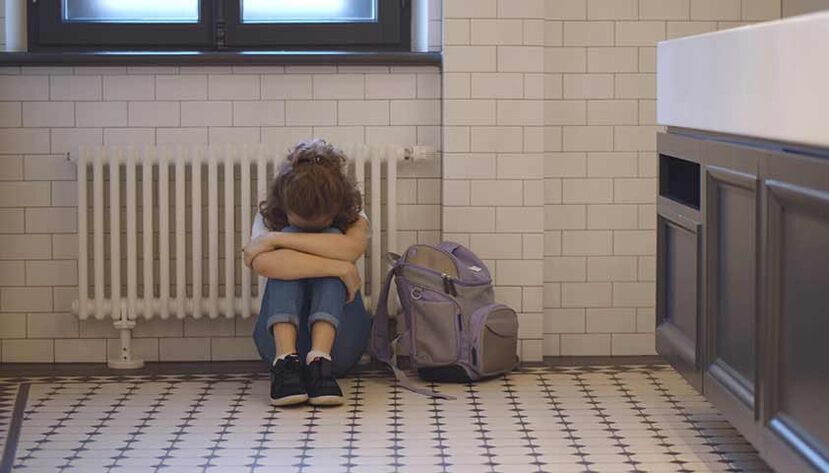
Due to enorez, the child usually becomes the object of ridicule. This greatly reduces self -esteem and leads to psychological problems
Causes of enuresis in adolescents and adults:
- Hormonal disorders: diabetes, hyperparathyroidism, reduction in vasopressin;
- Inflammatory diseases of the genitourinary system: pyelonephritis, urethritis, cystitis, prostatitis, orchitis (inflammation of eggs);
- regular alcohol abuse;
- Slipper trauma, spinal cord;
- Congenital anatomical anomalities (eg, very small bladder) or weakening of the pelvic floor muscles;
- stress.
Most of the time, enuresis develops under the influence of several factors at the same time, and in some cases it is not possible to precisely distinguish the main cause of incontinence.
Enorez classification
The enuresis is divided into the primary, when the problem was first identified and periods of total control over urination and secondary, which was preceded by a "dry" period controlled for a long time for six months or more.
In the clinical recommendations of the Ministry of Health of our country, the disease is defined as a nightly incontinence of urine that occurs during sleep. But in medical practice, it is sometimes divided into night, day and mixed. Complicated and non -complicated enuresis is also distinguished: in the first case, the syndrome is not associated with other diseases, in the second is associated with central nervous system pathologies, infections and other problems with the urinary system.
Enorez symptoms
The main sign of enuresis is the inability to control urination during night sleep. Less frequently - during the day. The unusual emptying of the bladder cannot occur every night, but regularly. The diagnosis of enuresis is made if this happens two or more times a month for 3 months.
With an enuree, a person can urinate more often during the day, face involuntary urinary leaks, try a false urination or, conversely, feel that after visiting the bathroom, the bladder is not completely exhausted.
Children and adolescents with enuresis can get more closed and annoyed to sleep worse at night, reduce school performance.
Which doctor treats enuresis
The enuresis causes several reasons, so a large number of experts are involved in their diagnosis and treatment. Adult patients are recommended to contact the therapist and the urologist. If the child's enuresis, it is necessary to reach the reception to the pediatrician who will conduct an inspection and recommend narrow specialists. This can be a urologist, gynecologist, nephrologist, neurologist, psychotherapist, endocrinologist. General clinicians and narrow experts collect a family history, hear the patient's complaints and examine. The diagnosis of enuresis is usually based on a clinical picture, and tests and instrumental studies are prescribed to clarify the causes.
Enoorez laboratory diagnoses
Evaluating the general condition of the body and identifying the inflammation of the genitourinary system is helped by a general urine analysis and urine analysis by Nechiporenko.
In some cases, an analysis is prescribed to determine the level of vasopressin (antidiuretic hormone). It controls the water level in the body and affects the intensity of urination.
Instrumental diagnosis of enuresis
With an enuree, the doctor can prescribe a bladder ultrasound. This study can be replaced by magnetic resonance imaging or computed tomography of the bladder and other organs of the urinary system.
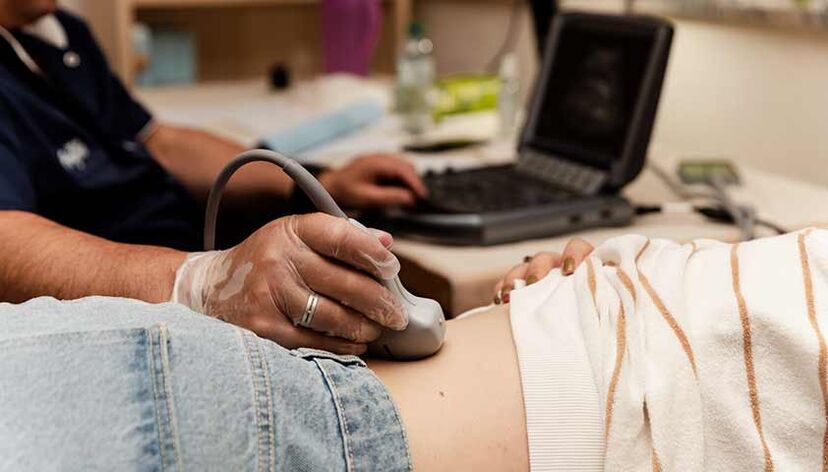
Ultrasound helps to evaluate the work of the bladder and find out how much urine remains in it after urination
If ultrasound results are not enough to determine the cause of enuresis and prescribe treatment, the patient will be directed to a cytographic examination. For this procedure, a catheter is introduced into the bladder and fills the organ with a contrasting drug or oxygen, after which they take pictures of full and empty bladder.
Evaluate the velocity and volume of urine flow during urination allows the Uroflowetry method. During the study, the patient urine at the funnel receiver of the uroflouimeter device. With this study you can get information about the urine flow rate and fluid volume, select the standard indicators (markers) of the standard. This data is entered into the processed sensor operating system, and the results are displayed on the graphic computer monitor. The doctor deciphes the results.
If the patient in the past has had injuries or a doctor suspected of anomalies of the Lombsacro department structure, which may also cause enuresis, may prescribe an X-ray of this column.
In children and adolescents, enuresis usually develops not due to injuries or infections, but due to late development of the central nervous system and stress. In this case, they are recommended by examination by a neurologist and psychotherapist.
Enorez treatment
In adults and adolescents, enuresis is usually a symptom of infection, endocrine disease or injury. Therefore, first and foremost, it is necessary to identify this pathology as early as possible and start its treatment.
Children's utterances are treated by behavior correction (motivational therapy), medications, physiotherapy, psychotherapy or combinations of these methods.
Drug treatment
If the main cause of enuresis is violations of the nervous system, medications that help normalize their work can be prescribed for the child. They are group B vitamins, nootropic medicines, glutamic acid, glycine. Antidiuretic medications are also prescribed and, in some cases, tricyclic antidepressants. But the latter are used less frequently as they have a more pronounced side effect.
Separately or as part of complex therapy, drugs are prescribed that normalize the work of the bladder muscle shell - Detrurezer. If enuresis is associated with an infectious disease, they can prescribe an antibiotic course.
Physiotherapy
The procedures are prescribed as an independent type of treatment or in combination with medicines. Paraffin applications in the lower abdomen and back in the Lombsacro Department area, physical therapy, electrophoresis and magnetotherapy exercises provide a good effect.
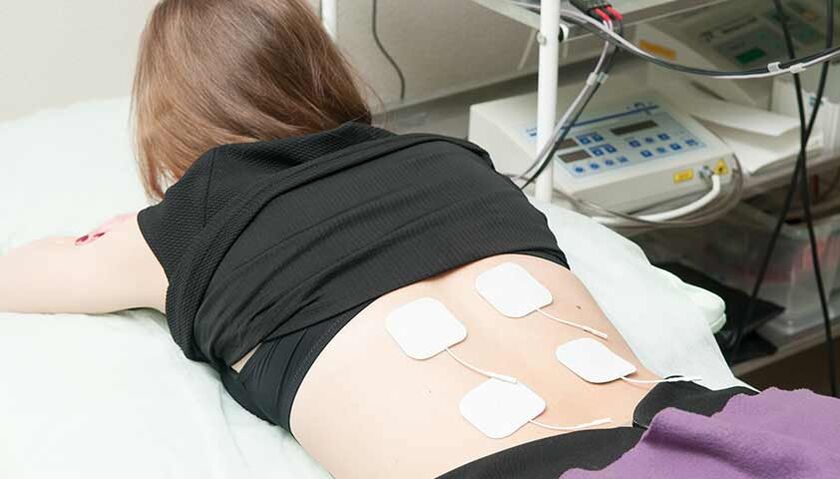
For comprehensive treatment of enuresis, gymnastics and physiotherapy are used
Psychotherapy
In cases where enuresis developed as a result of stress or neurotic disorder, a psychotherapist prescribes treatment. If a child suffers from an Enuree, a good effect is given by family and sedative sessions suitable for a small patient by age. But it is even more important to create a favorable atmosphere for him at home, to show that adults on his side will help him deal with this problem. In no case should you rebuke and embarrass the child: it is less to blame for your illness. Pressure and aggression will lead to the fact that symptoms will not disappear but increase. In adolescents and adults, enuresis can also be caused by psychological causes and in this case they can recommend individual therapy.
Experts do not advise the use of diapers with an enuree, who hide the unpleasant sensations and level the problem - it is better to protect the bed with adhesive or disposable diaper. There are special devices - Highlights attached to pajamas or underwear and respond to the first excreted drops of urine with a sound signal. This gradually accustoms to a person to respond to the body's desire and wake up in time to go to the bathroom.
Strictly compliance with the day regime and regular bathroom visits play an equally important role. Before going to bed, it is better to go to the bathroom twice: even the night's hygiene procedures (washing, brushing, shower) and after them. During the day, you need to drink enough water, but one or two hours before bed, it is worth limiting the use of fluids as well as products that irritate the bladder is mainly fruits and citrus juices. Teenagers and adults also need to abandon alcohol, tea, coffee, energy and other cafes containing.
Prediction and prevention
Summer treatment, compliance with the doctor's recommendations, the daily routine and, most importantly, the proper and benevolent reaction of parents and other relatives provide good results and allows you to completely get rid of the problem of involuntary night time.
It is impossible to prevent enuresis, but the risk of its development is reduced if the expectant mother carefully monitors her health during pregnancy: refusal bad habits, takes a healthy lifestyle, observes the daily routine and follows the doctor's recommendations to avoid complications during pregnancy and birth.
If the child has already found the problem of enorez, the favorable environment in the family and child team will help to avoid repetition. It is worth making every effort to avoid stressful situations that can cause a relapse of the disease. Adults carefully monitor their health and time to identify and treat genitourinary system infections, as well as use condoms during sex to avoid sexually transmitted infections.
Frequently Asked Questions
What is enuresis?
Enudesis is an involuntary urination in adults and children over 5 years of age, which occurs more often twice a month, usually during sleep. This disease in children usually occurs independently and does not affect their health. But the enuresis seriously affects the child's self -esteem and their relationship with parents and colleagues, so many experts recommend treating urine incontinence from 6 to 7 years.
Why was an adult described at night in a dream?
Night urinary incontinence can cause genitourinary infections, hormonal failures, spine trauma and spinal cord, weakening of pelvic floor muscles and even serious experiments. This can also happen if a person is in a state of alcohol or narcotic poisoning. If involuntary urination at night occurs regularly, you should consult a doctor who may determine the cause of this delicate problem and prescribe treatment.
How to get rid of enorez?
The cause of enuresis may be infectious diseases, stress, hormonal malfunction. In children, the nightly incontinence of urine is often associated with the characteristics of central nervous system development. The treatment is prescribed, depending on what exactly caused a nightly incontinence of urine. Most of the time, it combines medications (synthetic, sedative hormones, tricyclic antidepressants) and physiotherapy methods - electrophoresis, gymnastics, magnetic therapy and laser. If enuresis is associated with a neurotic disorder or chronic stress, it is recommended to seek help from a therapist.
Which doctor treats enuresis?
The enuresis causes several reasons, so a large number of experts are involved in their diagnosis and treatment. Adult patients are recommended to contact the therapist and the urologist. If the child's enuresis, it is necessary to reach the reception to the pediatrician who will conduct an inspection and recommend narrow specialists. This can be a urologist, gynecologist, nephrologist, neurologist, psychotherapist, endocrinologist.

















